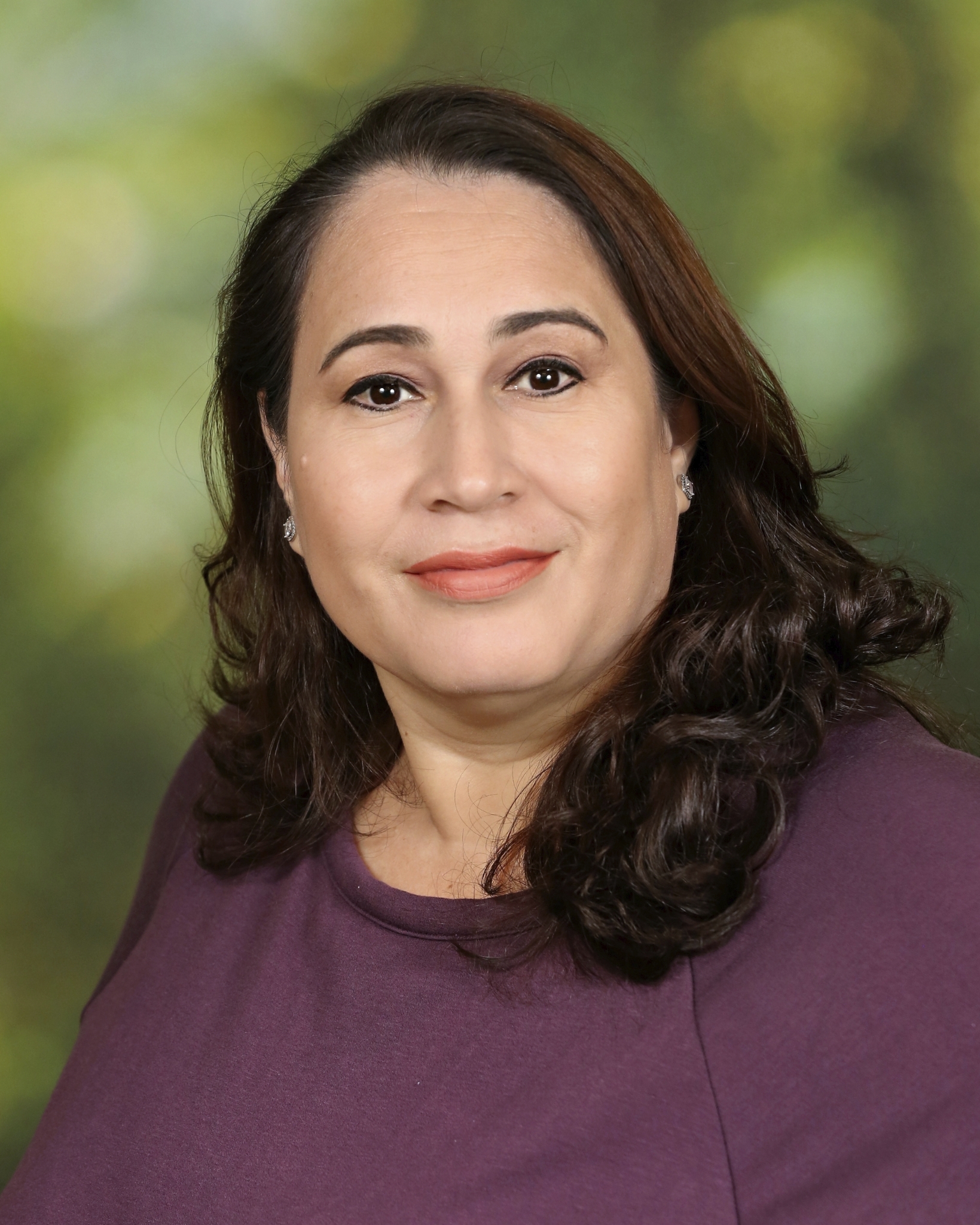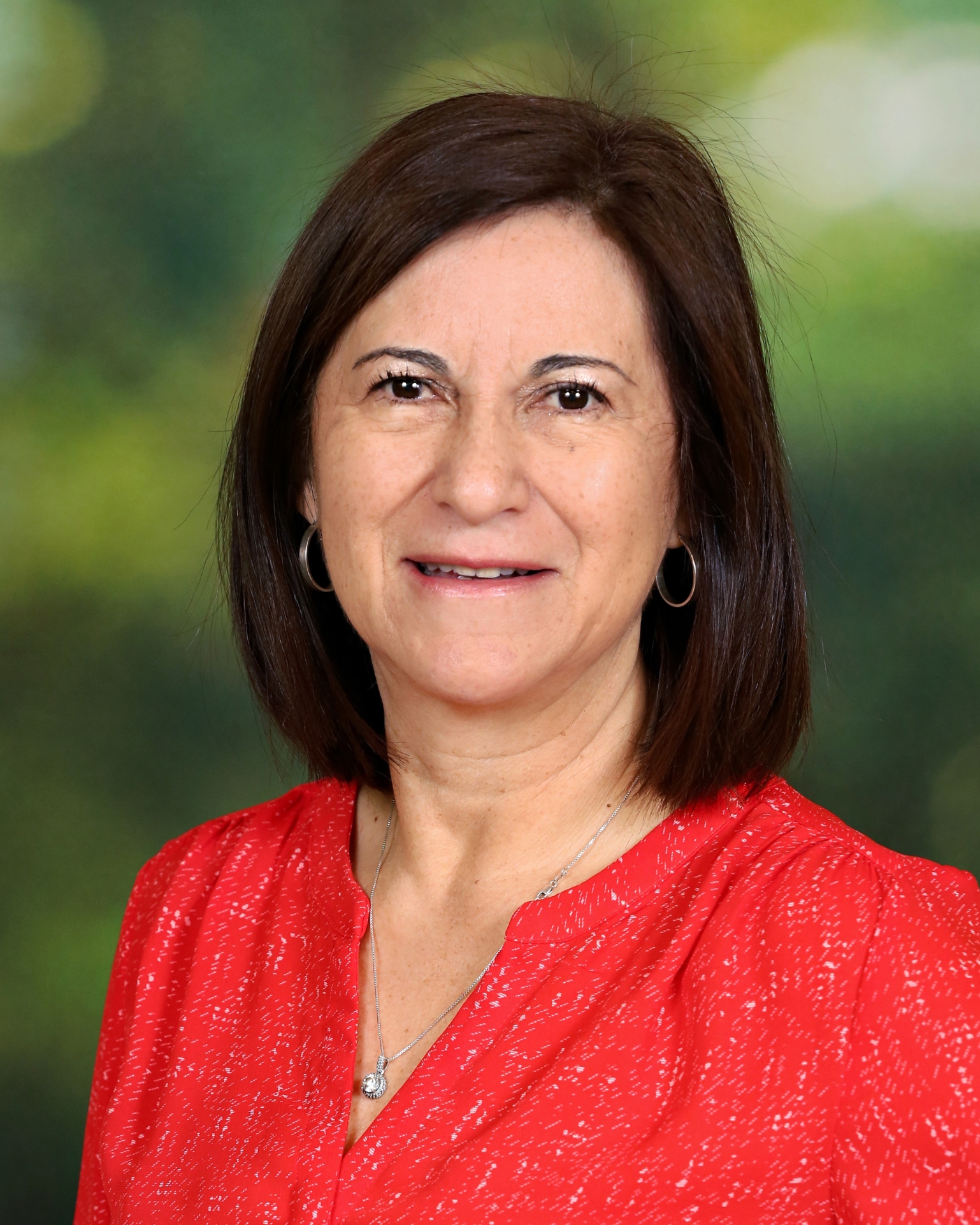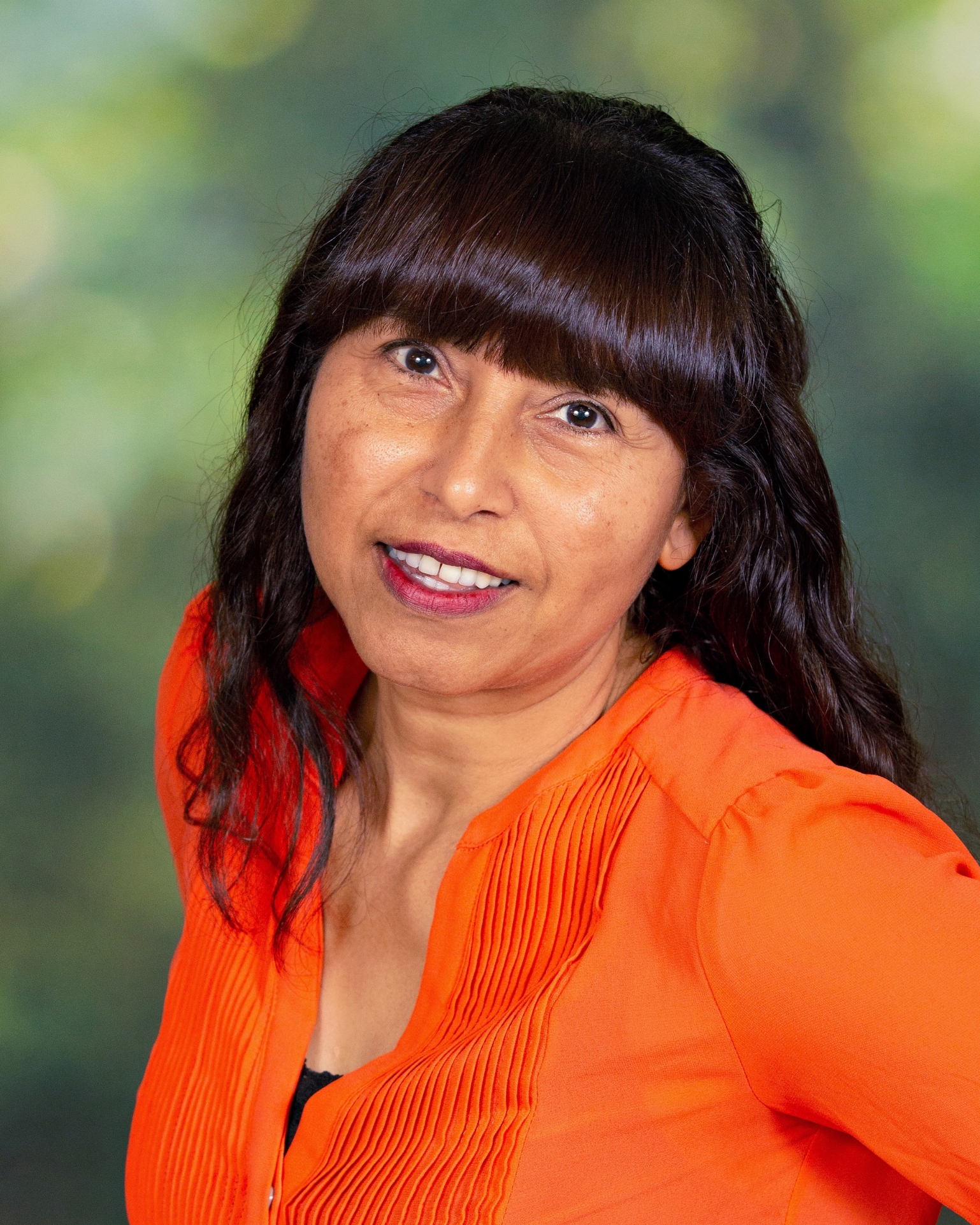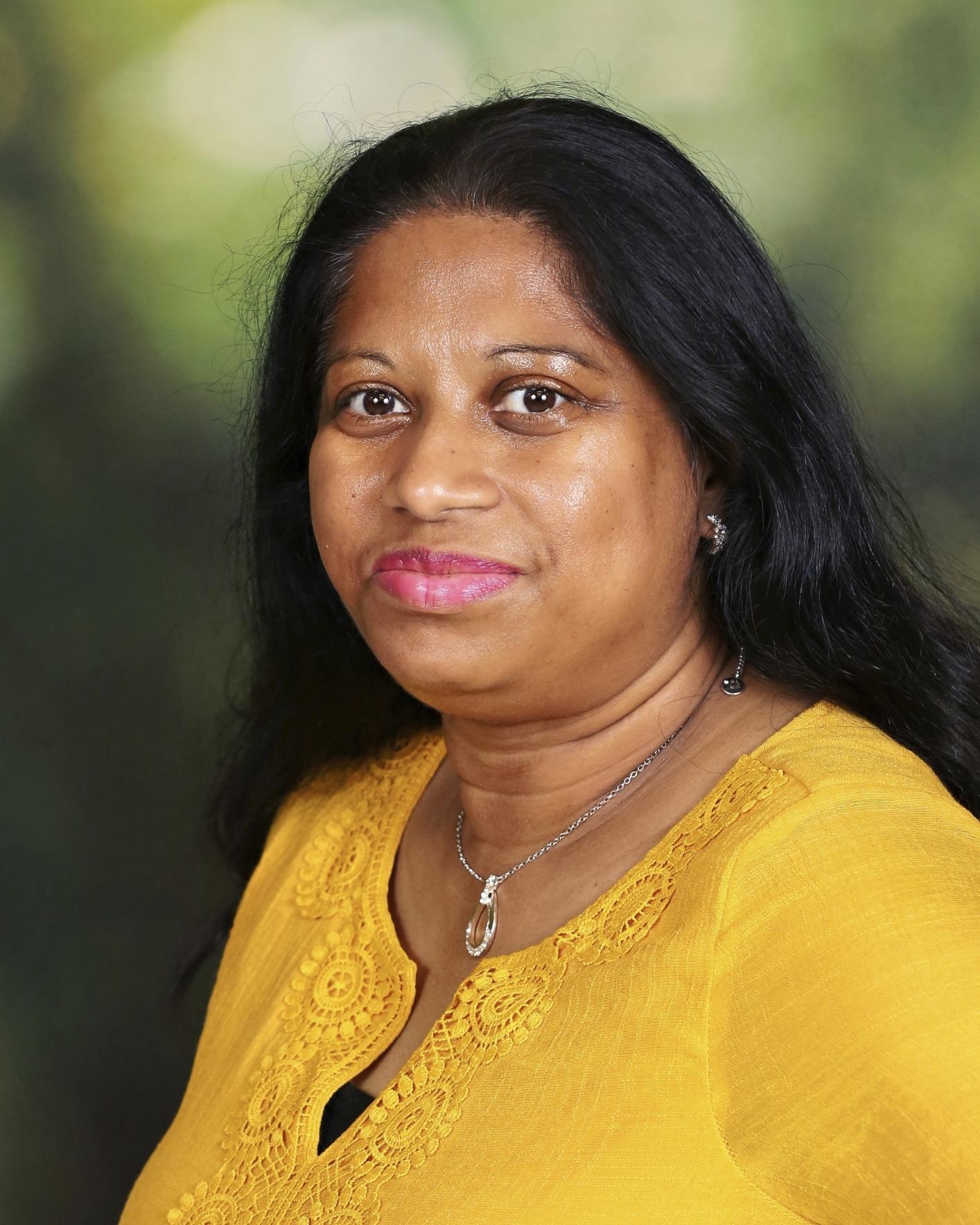Even in these youngest rooms, we find opportunities to begin introducing the three elements of our Preschool Program: learning through play, thematic units and the Creative Curriculum. At this point of development, learning through play is most heavily emphasized. We ensure our children are stimulated and challenged every day to develop the skills they will need to be successful.
Infant Classrooms

Guppies
6 weeks – 10 months
301-530-4526, Ext. 239

Ms. Thanuja

Ms. Mercedes

Ms. Soranji

Minnows
6 weeks – 10 months
301-530-4526, Ext. 238

Ms. Nanda

Ms. Asoka

Ms. Roshini
What can I expect in the infant classrooms?
Every day, your baby will be read to, participate in circle time, have independent tummy time and enjoy wonderful experiences with music. We also love to go outside for stroller rides and enjoy the fresh air when the weather is nice! We place a strong emphasis on all areas of development– cognitive, social, emotional, physical, and fine and gross motor. Above all, we give your child a tremendous amount of love and the best care possible.
Who is in the infant classrooms?
Children in the infant rooms range from six weeks to about 10 months. There are six infants and three teachers in each room. State regulations require one teacher to every three babies. We are very fortunate to have an extra teacher in the middle of each day to help give as much attention as possible to all of our little ones. Once a baby begins to crawl or pull themselves up, it’s a sign that they may soon move on to the mobile baby classrooms.
Sign in and out process
Daily diary charts are completed throughout the day. The top section is information provided by each parent when they drop off their child, including how long your child slept the night before, how much the child has eaten and any other information that is helpful in caring for your child that day. The rest of the chart is information the teachers fill out about your child’s day, such as diaper changes, the amount of food consumed and when, and any extra details like songs that were sung that day.
Diaper changing
Children are changed every two hours. However, we are always checking your little one for a bowel movement which requires immediate attention! Parents provide all of the diapering supplies, diapers, wipes, cream, etc., for their child. We will let you know on your child’s chart if you are running low on any supplies.
Cubbies, bottles and food
Every child is assigned a cubby for extra clothes, diaper bags, hats and any other garments your child may need throughout the day. For parents bringing in breast milk or formula, the shelves on the refrigerator door and the interior shelves will be labeled with your child’s name. All food and bottles that come in should be labeled with your child’s name, and all bottles must have a lid. Next to the refrigerator are cabinets which will hold all non-refrigerated food such as cereal and jars of food. The school provides breakfast and snack, which for infants includes items such as yogurt, applesauce, puffs, cereal, Mum-Mumms and organic pouches of fruit and vegetables.
Sleeping and cribs
All children are placed on their backs for sleeping unless a note is brought in from your child’s doctor. Each child has their own crib with fitted sheets provided by the school. If your child requires any other item in their crib, state regulations require parents to bring us a note from your child’s pediatrician.
How can I prepare?
Please write your child’s name on his/her belongings such as bottles (please bring in bottles with caps), food containers (each piece), blankets and shoes. Please provide us with a detailed note of any food allergies that your child has. Always fill out the medication form if your child needs to take medication at school (we are unable to give medication without written permission). If your child is given medicine at home, please warn us about any reaction that may occur. Please check to make sure there are extra clothes in his/her cubby. If you can, let us know if you plan to pick up your child early so we can reschedule his/her day accordingly.
What do I bring for the classroom?
- Four to six full bottles and/or food for the entire day
- Diapers, wipes and diaper cream
- Two complete sets of extra clothing including shoes and socks
- A copy of your child’s daily schedule and routine
Mobile Babies Classrooms

Tadpoles
10 months – between 15 & 18 months
301-530-4526, Ext. 224

Ms. Maria

Ms. Marlene

Ms. Maritza

Goldfish
10 months – between 15 & 18 months
301-530-4526, Ext. 222

Ms. Thamara

Ms. Remona

Ms. Piumali
What can I expect in the mobile babies classrooms?
Mobile babies usually move up from the infant rooms at about 10 months and stay until they are ready to move on to one of the toddler rooms at 15 to 18 months. Mobile babies are able to control their heads, crawl, hold their own bottles and even pick up and eat finger food. Some may not demonstrate all of these skills in the beginning, but we work with them as they learn and develop to prepare them to move on to the toddler rooms.
Mobile babies develop their motor skills through play and activities. They are encouraged to drink milk in the drinking chairs instead of being fed by an adult. When new babies see their other friends eating food by themselves, they too will start to eat finger food and try to do more things independently. These efforts also help develop fine motor skills. You will probably see more food around their chair than on the tray, but that is all part of the development process!
Mobile babies enjoy activities and love to be in a group. They have fun singing, clapping, reading and sharing with friends. Mobile babies are still on their own schedules with a couple of the babies taking two naps and others who have transitioned to one. As your child gets older, we will encourage him/her to only take one nap a day in preparation for the group schedule in the toddler rooms.
The sounds babies make gradually turn to simple words to express their feelings. We try to avoid using the word “no” when communicating with your children. Instead we use statements like, “We eat food. We don’t throw it.” Our teachers also teach and use some basic sign language with the mobile babies such as “more”, “milk” or “please.”
Who is in the mobile babies classrooms?
The class ratio for the mobile babies is the same as the infants: six babies and three teachers. These transitional classrooms are exclusive to RSCC, as most centers are set up to have children move from infant classrooms directly into toddler classrooms. However, we know children experience an additional phase between infancy and toddlerhood, where they are scooting, crawling and sometimes even walking. For this reason, we designed the mobile baby rooms, where babies can move around, explore and play in a more developmentally-appropriate space that is conducive to the skills they are learning at this fun stage of life. Babies typically transition into the mobile baby rooms between 8-10 months, then move into the toddler rooms between 15-18 months.
Sign in and out process
Daily diary charts are completed throughout the day. The top section is information provided by each parent when they drop off their child, including how long your child slept the night before, how much the child has eaten and any other information that is helpful in caring for your child that day. The rest of the chart is information the teachers fill out about your child’s day, such as diaper changes, the amount of food consumed and when, and any extra details like songs that were sung that day.
Diaper changing
Children are changed every two hours. However, we are always checking your little one for a bowel movement which requires immediate attention! Parents provide all of the diapering supplies, diapers, wipes, cream, etc., for their child. We will let you know on your child’s chart if you are running low on any supplies.
Cubbies, bottles and food
Every child is assigned a cubby for extra clothes, diaper bags, hats and any other garments your child may need throughout the day. For parents bringing in breast milk or formula, the shelves on the refrigerator door and the interior shelves will be labeled with your child’s name. All food and bottles that come in should be labeled with your child’s name, and all bottles must have a lid. Next to the refrigerator are cabinets which will hold all non-refrigerated food such as cereal and jars of food. The school provides breakfast and snack, which for infants includes items such as yogurt, applesauce, puffs, cereal, Mum-Mumms and organic pouches of fruit and vegetables.
Sleeping and cribs
All children are placed on their backs for sleeping unless a note is brought in from your child’s doctor. Each child has their own crib with fitted sheets provided by the school. If your child requires any other item in their crib, state regulations require parents to bring us a note from your child’s pediatrician.
What’s the schedule for mobile babies?
Mobile babies have breakfast in the morning before beginning a fun-filled day with their friends. Some take a nap while others enjoy a stroller ride or play on the playground with the toddlers. After lunch, the mobile babies have free-play time and then all take a nap. After having a snack, the mobile babies either play in the classroom or go for a stroller ride. This schedule may be adjusted slightly depending on the weather.
Daily Schedule:
- 7-9 am: Arrival & breakfast
- 9-9:30 am: Diaper change/free play/music time
- 9:30-10:30 am: Morning nap
- 10:30-11 am: Stroller ride
- 11-11:30 am: Diaper change/free play
- 11:30 am-12 pm: Lunch
- 12-12:30 pm: Diaper change/prepare for nap
- 12:45-3:00 pm: Nap time
- 3-3:15 pm: Wake up/diaper change
- 3:15-3:30 pm: Afternoon snack
- 3:30-4:30 pm: Activities/story time
- 4:15-4:30 pm: Diaper change
- 4:30-5 pm: Stroller ride/play
- 5-6 pm: Diaper change/free play/departure
What are some of the the activities mobile babies participate in?
- Reading books
- Singing songs
- Dancing
- Stroller rides
- Sign language
How can I prepare?
Please write your child’s name on his/her belongings such as bottles (please bring in bottles with caps), food containers (each piece), blankets and shoes. Please provide us with a detailed note of any food allergies that your child has. Always fill out the medication form if your child needs to take medication at school (we are unable to give medication without written permission). If your child is given medicine at home, please warn us about any reaction that may occur. Please check to make sure there are extra clothes in his/her cubby. If you can, let us know if you plan to pick up your child early so we can reschedule his/her day accordingly.
What do I bring for the classroom?
- Four to six full bottles and/ or food for the entire day
- If applicable, a sippy-cup with a lid
- Three bibs
- A large box of diapers, one box of wipes, and ointment or powder
- Two complete sets of extra clothing including shoes and socks
- A copy of your child’s daily schedule and routine
